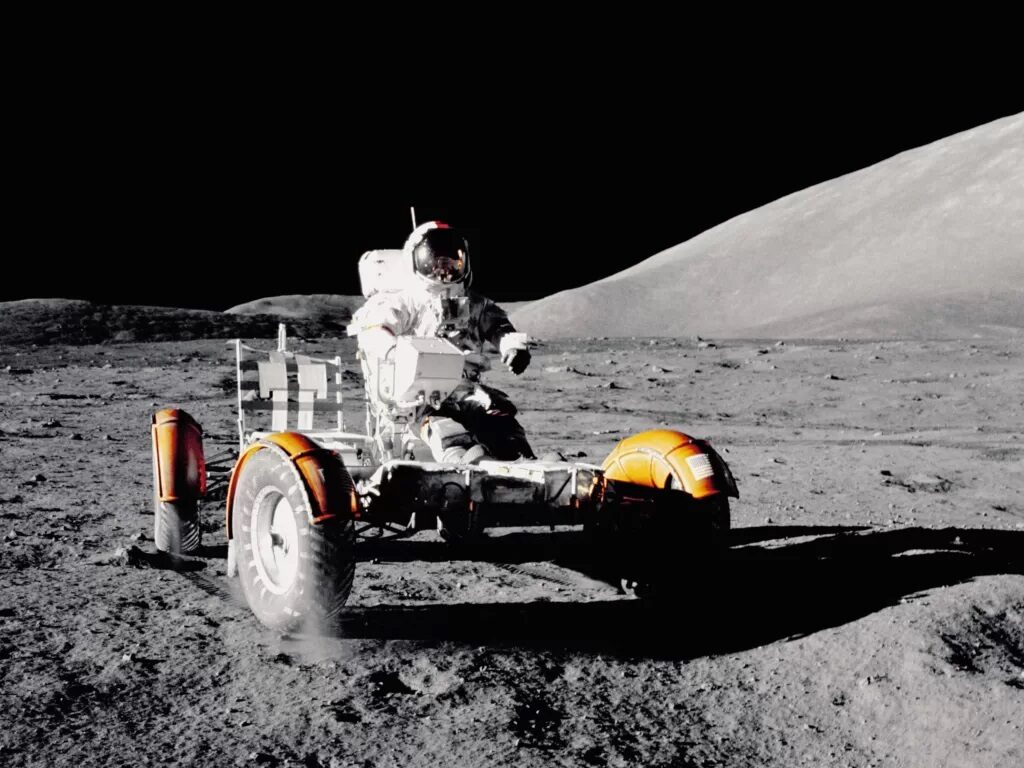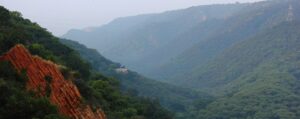Environmental Implications Of Human Presence On The Moon

The Lunar Resources Registry, a private business that locates valuable resources on the moon and helps investors conduct the required exploration and extraction operations, notes: The space race is evolving into space industrialisation (Photo by NASA)
Humans have always looked at the sky, using the stars as navigation guides or for spiritual storytelling. Every human civilisation has looked to the stars and used celestial movements to measure time and find meaning.
This insatiable thirst for knowledge combined with technological advancements have made it possible for us to dream of travelling in space. These dreams became more and more real after the Second World War, the Industrial Revolution, the Cold War and the large-scale exploitation of the Earth’s resources.
Dreams of space travel started small with the launch of Sputnik-1 by the Soviet Union, and escalated with the US Apollo landing on the moon in 1969.
Six decades later, plans are ramping up for space tourism, missions to the moon and Mars, and mining on the moon.
The Lunar Resources Registry, a private business that locates valuable resources on the moon and helps investors conduct the required exploration and extraction operations, notes: The space race is evolving into space industrialisation.
According to NASA, the moon holds hundreds of billions of dollars of untapped resources, including water, helium-3 and rare earth metals used in electronics.
The Dawn Of The Anthropocene
As a group of academics researching various aspects of environmental sustainability on Earth, we are alarmed at the speed of these developments and the impacts resource exploitation will have on lunar and space environments.
There is a movement among the international geologic scientific community calling for a new epoch – the Anthropocene – reflecting the enormous extent to which human activity has altered the planet since the end of the Second World War.
Stratigraphers – geologists who study the layers of rock and sediment – look for measurable global impact of human activities in the geologic record. According to their research, the starting point for the Anthropocene has been identified as beginning in the 1950s, and the fallout from nuclear testing.
To shock humankind into preventing the extensive destruction in space that we have wrought on Earth, it may be effective to add a lunar Anthropocene to the moon’s geologic time scale.
The case for a lunar Anthropocene is interesting. It can be argued that since the first human contact with the moon’s surface, we have seen anthropogenic impact. This impact is likely to increase dramatically. This is presented as justification for a new geologic epoch for the moon.
Damaging The Earth
This new human epoch is hotly debated among stratigraphers as well as researchers in other disciplines. For humanities researchers and artists, the importance of the Anthropocene lies in the power the concept has to evoke human responsibility for bringing the Earth’s system to a tipping point.
In The Shock of the Anthropocene, historians Christophe Bonneuil and Jean-Baptiste Fressoz argue that the new human epoch entails recognizing that technoscientific advances which have driven socio-political economies relying on extractivism, consumption and waste have led to the extent of damage we measure on Earth at present.
For millennia, most societies understood the importance of their relationship with the natural world for survival. But industrialization and the endlessly growing economy in developed countries has destroyed this relationship.
For example, trees used to be respected for providing timber, food, shade and more. But our industrial growth changed all that; in the past 100 years, more trees have been cut than had been felled in the preceding 9,000 years.
A Lunar Anthropocene
And now the Anthropocene, this age of human impact, is also arriving on the moon.
NASA estimates there are already 227,000 kilos of human garbage littering the moon, mostly from space explorations, including moon buggies and other equipment, excrement, statues, golf balls, human ashes and flags, among other objects.
An increasing number of moon missions and extracting resources from the moon could destroy lunar environments. This mirrors what has happened on our planet: humans have used this collection of natural resources and produced enough waste and degradation to bring us to the current sixth mass extinction precipice.
Our throwaway society leads to not only habitat destruction on Earth, but also now on the moon and in space. We must rethink what we really need. Without a fully functional Earth system, including biodiversity and nature’s contribution to life, we will be unable to survive.
If the intent is to issue a word of caution and pre-emptively shock and elicit a feeling of responsibility on the part of those actors likely to impact the moon’s surface, it may very well be the right time to name a lunar Anthropocene. This may help prevent the kind of extensive and careless destruction we have caused and continue to witness on Earth.
(The Conversation: By Christine Daigle, Jennifer Ellen Good and Liette Vasseur, Brock University)





